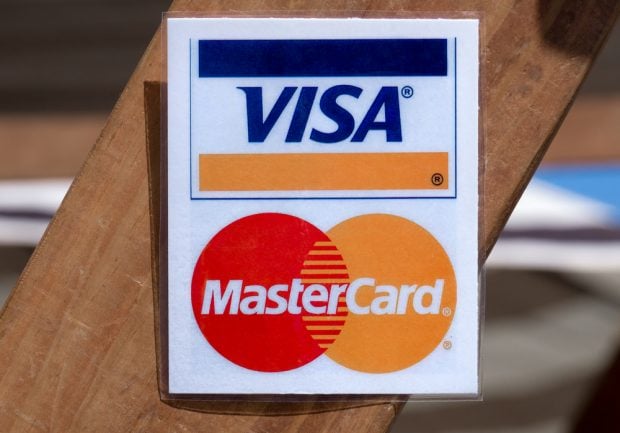Call it a sign of the times, but two credit unions in Florida have found themselves on the innovative edge of credit unions collections."Here in Florida the recession really got started in mid-2007," said Mark Starr, CEO of the $451 million Florida Credit Union, headquartered in Gainesville.At first, Starr recalled, it was hard to see what was happening, and the credit union still largely clung to the same approach to collections it had used for years. But by late 2007, it had become clear that the credit union faced an economic tsunami, and it needed to change its policies or risk being washed away in a flood of bad debts."We saw it first in real estate, by far," Starr said. "Then as real estate started to abate somewhat, we started seeing it coming in the auto and other kinds of commercial loans. As people have lost their jobs, the unemployment rate has pretty much driven us to change our collections policy."Florida's call reports tell the tale. In March of 2007, the credit union's ratio of delinquent loans to total loans stood at 0.15%. But by the end of the year that figure ballooned to 0.78%, and by December 2008, it almost doubled again, topping out so far at 1.45%. In March of this year, the credit union's call reports showed, the rate stood at 1.43%.Starr said the credit union's previous approach to collections was more traditional and focused on the loan more than the borrower and what might be going on with him or her. Now, he said, it is much more borrower-focused and seeks to help the borrower repay the credit union."It's a subtle shift, but we aim our collections message to get our members with delinquent loans to let us help them pay us. It's that simple. Whether it's loan modification, a payment arrangement, whatever. We want to help them, that is the message we want to get through."Starr said the credit union had to more than double its staff making collections calls, which steadily became financial counseling calls. The calls would usually come in at night, so the staff would have to work later than usual; the credit union rotated the staff involved in the effort.He also reported that Florida CU quickly became proactive with members, calling them early-sometimes on the day after a payment was due, just to make sure that things were all right. Then, if there was a problem, the credit union could get it resolved quickly.Starr reported that the credit union's field of membership includes Gainesville, a relatively wealthy city where University of Florida is headquartered, and where the unemployment rate is among Florida's lowest. It also covers a rural county to the south of the city where the unemployment rate is among the highest. "Not surprisingly, that is where a lot of our collections activity comes from," he noted.The message has been hard to get across to members who, Starr said, were too often too afraid to pick up their phones and talk to the credit union. "It's really very frustrating for us because most of the time, almost all of the time, we will be able to help them, but we can't help them if we can never get them talking," he said.In its situation, Grow Financial Federal Credit Union changed the way it managed its collections staff and included more information gleaned from collections activity into the lending process, according to Dona Svehla, vice president for loss prevention for Grow Financial.The Tampa-based, $1.7 billion credit union figured out early in the economic crisis gripping the state that it should start honing its collections staff, which had a finer tuned ear for what was going on with members.Svehla recalled that the collections staff picked up on the skyrocketing unemployment rate among the credit union's members and suggested a six-month unemployment loan modification plan to offer the growing number of members who were being laid off.Svehla also said the credit union figured out that information from its loss-prevention effort could help strengthen future loans if it could make its way from collections to lending. Soon the two departments began comparing information which, Svehla noted, allowed the collections department to inform the lending department about the high depreciation on some autos in time for the lending department to build it into auto loan pricing."It's always better for us to have stronger loans on the front end, that helps us keep from having weaker loans on the back end," Svehla said.Karin Brown, vice president of collections for Lending Solutions Consulting, said the changes that Florida CU and Grow Financial were making in their collections operations would likely flourish throughout the industry."Credit unions are going to have to understand that in this economy the approach of helping the credit union member pay you is going to be what works," Brown said. "The approach of give us our money or give us your house or your car is not going to work. Because in the bottom line, credit unions would much rather that their members keep their houses and cars and pay something on them than to give them back."–[email protected]
Complete your profile to continue reading and get FREE access to CUTimes.com, part of your ALM digital membership.
Your access to unlimited CUTimes.com content isn’t changing.
Once you are an ALM digital member, you’ll receive:
- Critical CUTimes.com information including comprehensive product and service provider listings via the Marketplace Directory, CU Careers, resources from industry leaders, webcasts, and breaking news, analysis and more with our informative Newsletters.
- Exclusive discounts on ALM and CU Times events.
- Access to other award-winning ALM websites including Law.com and GlobeSt.com.
Already have an account? Sign In
© 2024 ALM Global, LLC, All Rights Reserved. Request academic re-use from www.copyright.com. All other uses, submit a request to [email protected]. For more information visit Asset & Logo Licensing.









